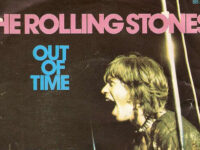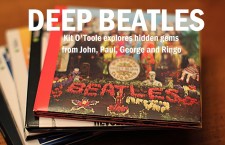On a recent internet search for musical news of interest, I came across a band whose home page announced not only that their soon-to-be-released album was coming out on vinyl, but also stated specifically that it would not be released on compact disc. I had to smile, because I can remember the waning days of the long-play record when for most artists that LP vs. CD proclamation would have been the other way around. I’m not going to argue the merits of one format over the other, but it is funny how the changing tastes of the music-buying public reflect a really short collective memory.
However, a look at the history of popular music in the rock and roll era shows that there have always been cases where various competing and complementing formats, compounded by the legalities of different licensing agreements in different countries, have caused individual songs to get lost in the shuffle. So, although most of these examples have finally seen reissue digitally or as part of a bonus-track edition, some of these tunes were hard to find collectable gems, at least for a while.
THE BEATLES, “THERE’S A PLACE” (1963): Most fans are aware that the Beatles’ early UK releases were often trimmed by their label in the U.S. Capitol Records would then take the extra tracks and compile them into a new album for the stateside market. As such, “There’s a Place” got cut from the 1963 UK debut album Please Please Me, as that record became Meet the Beatles in the U.S. in late January 1964. But due to some legal wrangling, the first Beatles album to be released in America is technically Introducing … the Beatles, which came out a few days earlier on the small Vee-Jay Records label. “There’s a Place” appears on the Vee-Jay release, and when the rights reverted back to Capitol, the song disappeared from public availability (and public familiarity) in North America until Capitol’s Rarities compilation in 1980. Finally, this great little song got reintroduced to a new generation of U.S. listeners after a long absence. Meanwhile, British fans never knew it had even gone away.
THE POLICE, “DEAD END JOB” (1978): In most countries, this appeared as the 7-inch 45 RPM B-side of “Can’t Stand Losing You” taken from the Police’s debut long player Outlandos d’Amour in 1978. Although recorded by the trio, the song itself predates guitarist Andy Summers’ involvement with the Police, which might be the reason it didn’t make the final running order for the album. This punked-up rant about unemployment in England features Sting delivering an inventory of dead end jobs, including the ironic “Don’t wanna be no teacher” (which he had been), and “Don’t wanna be no millionaire” (which he would soon be).
BON JOVI, “WANTED DEAD OR ALIVE [ACOUSTIC VERSION]” (1987): This is likely out there somewhere in digital form, but in 1987 it was only available as an extended-play cassette. In the liner notes, Jon Bon Jovi himself says that this version was a how the song sounded when he and Richie Sambora wrote it “in the basement on a cold January night in Jersey.” The great thing here is that if you play your cassette often enough, you can probably get it to sound like a true rough demo tape instead of the well-produced studio re-creation heard here.
BLACK SABBATH, “NAIVETE IN BLACK” (2013): When is a bonus track really a bonus track? Well, it depends. Take the case of Black Sabbath’s 13, the final studio effort (until they change their minds, anyway) released in 2013. The standard album has eight songs; a deluxe version has 11. The Japanese version has the standard eight plus “Naivete in Black,” which isn’t one of the three found on the deluxe version. The whole idea of Japanese bonus tracks is a mystery to many North American music fans. As it turns out, in Japan it’s cheaper to import compact discs from out of country, so the bonus tracks encourage Japanese consumers to buy domestic. And for North American completists to buy high-priced Japanese imports.
But we’re not done yet: for a while, electronics superstore Best Buy had an exclusive CD version of the album with the original eight songs, and a second disc with the three deluxe tracks and the track from Japan, as well. Finally, Spotify streams the 11-song deluxe version with a live rendition of the old Sabbath classic “Dirty Women” tacked on for good measure, or maybe just to make up a total of 13 available tracks to match the album title. Who knew Ozzy Osbourne was such a stickler for details?
PATTI SCIALFA, “SOME THINGS BABY” (1993): Before she became Mrs. The Boss, Patti Scialfa was a working singer/songwriter. As far as I know, this particular song only appeared as part of the “Lucky Girl” compact-disc maxi-single taken from her first album, 1993’s Rumble Doll. That maxi-CD designation is interesting, because it might mean it’s one of those tiny three-inch discs that show up once in a while as an import-only item. It’s hard to find anywhere: The last time I saw “Some Things Baby” online was on Scialfa’s Myspace page, a website that now has only a fraction of the traffic it once had. Too bad: this of one of her best original songs, aided by the production talents of Heartbreakers’ guitarist Mike Campbell.
U2, “A CELEBRATION” (1982): This was released in 1982 as a single between U2’s second and third albums, 1981’s October and 1983’s War. It disappeared from their live repertoire at the end of 1983, and has since showed up only on 2004’s The Complete U2 compilation and as a bonus track on the October reissue. Even the video the band shot for it never makes any video compilations. Rumor has it that U2 themselves hate the song, and have pretty much disowned it. Oddly, the B-side, “Trash, Trampoline, and the Party Girl” is reportedly the band’s most often played B-side in concert over the years, adding insult to injury to its platter mate.
- How David Bowie’s ‘The Next Day’ Stripped Away All of the Artifice - March 15, 2023
- Why Deep Purple’s ‘Who Do We Think We Are?’ Deserves Another Listen - January 11, 2023
- In Defense of the Often-Overlooked Mott the Hoople - November 10, 2022



